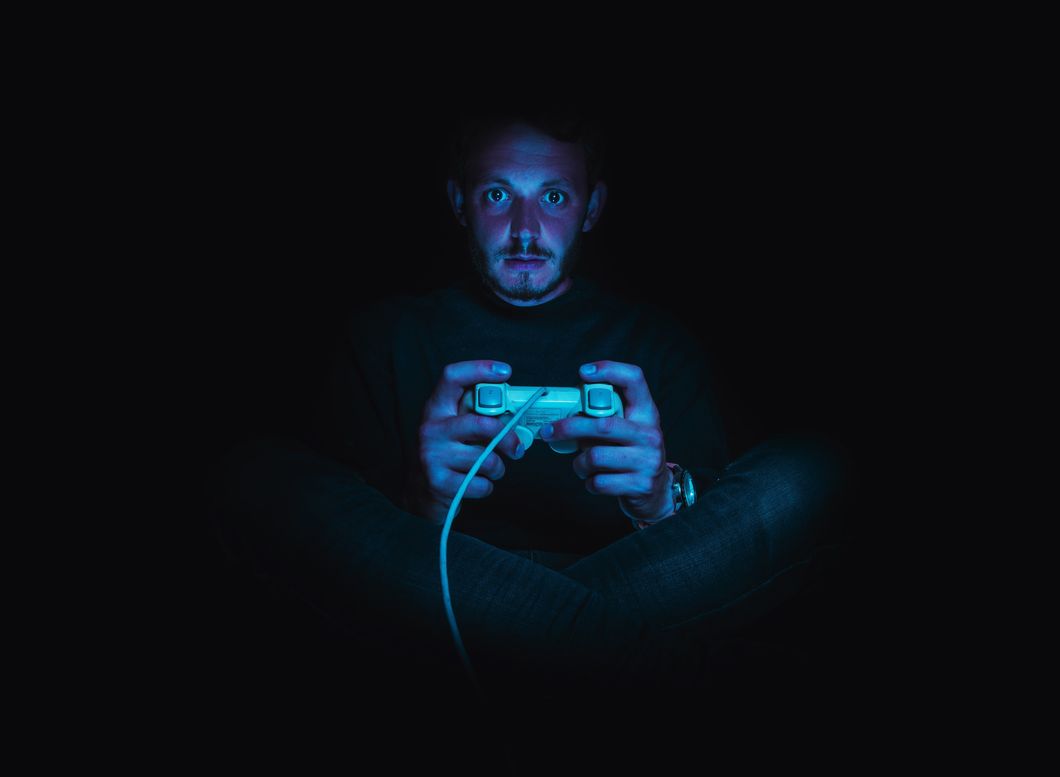Between the ages of twelve to seventeen, 97% of children play video games, with approximately 85% of them containing violence. The violence found in television and video games, subconsciously has a negative effect on those exposed to it. More than half of video games rated by the Entertainment Software Rating Board (E.S.R.B) contains harsh language and violence. Television and video games promote vicious behavior in children and desensitize an individual. American Psychologists have observed that violent video game use, has an increase in aggressive behavior, and decreases prosocial behavior, empathy, and moral engagement. The violent video games also contribute to the increase in teenage school shooters.
As children grow and mature, they tend to use their toys to reflect themselves, and in more recent generations, violent children's products are highly promoted. Study results showed that 60% of middle school boys and 40% of middle school girls who have played a rated mature game, have hit, bullied, or beat someone up. With vicious behavior being seen on tv, children's actions have a 'Monkey see, Monkey do', and begin to believe it is okay to be violent. Another problem is that children have more troubles learning how to control their anger. Consequently, if they see characters in TV shows and video games, acting out they will believe it is okay for them to do the same. The typical American Child will watch 200,000 acts of violence, including more than 16,000 murders before the age of 18. The violent virtual realities are becoming more realistic in children games and shows.
As children become more exposed to violence they desensitize to the actions. In military training, the government uses brutally gory video games for troops in training. They become accustomed to shooting and killing people, so when they go into battle, they have an exposure to it. As people play video games, it teaches them that violence solves everything, whether it be right or wrong. For example, they kill innocent people in games which can lead to a lack of compassion. Children begin to think along the lines that if you are in a confrontational situation that they can act out with violence and the issue will be resolved. This overexposure to violent games and shows can increase aggression, angry feeling, psychological anusal and there can be a decrease in happiness/ helpful behavior. When viewing real violence, participants who had played a violent game experienced skin responses significantly lower than those who played non-violent. The body's skin reacts differently from violent versus nonviolent games. They become less aware of the acts they are doing because their body desensitizes, and this can also be linked to school shootings.
In the past fifty years, there has been a rise in the number of school shootings. Those linked to playing games have a higher chance of being antisocial and having troubles dealing with emotions. In Sandy Hook, the shooter was known to a frequent player of violent first-person shooting games. His existence largely consisted of playing video games. Unfortunately, The media continues to release information about school shooters, which can influence others. The media refers to these shooters as "Successful" Shooters, regarding that they murdered a high number, which can drive others to strive for the title as well. Also, the media seems to romanticize the way each school shooter executes their plan. A recent school shooter, Chris Harper Mercer had similar tactics as other shooters had in the past. He left a journal where in it, he critiqued other school shooters. Harper wrote, "I noticed where they always go wrong is they don't work fast enough and their death toll is not anywhere near where it should be. They shoot wildly instead of targeted blasts. They also don't take on the cops. Why kill other people, but you won't take out the cops. The exposure of the other shooters played a role in how Harper executed his shootings. Furthermore, the shootings are being too widely covered and critiqued by the media that now shooters are starting to critique it themselves and try to do it better.
The media and video games are the influence that leads to so many violent outbreaks. Children are being subjected to view violence in games, which can lead them to believe wrong things. Correspondingly, individuals who obsessively play video games are becoming desensitized, as they become used to the feeling of it. Sadly, there has been a rise in teenage school shooters over the last 50 years. In the year 2017 alone, there have been 273 mass shootings across America.



















